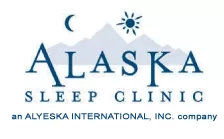
April is Alcohol Awareness Month, a crucial time to spotlight the impact of alcohol consumption on our overall health. While many are aware of the long-term health risks associated with excessive drinking, the effects on sleep are often overlooked. Understanding these connections is vital for promoting healthier sleep habits and overall well-being.
Obstructive Sleep Apnea (OSA) and Alcohol
OSA is a sleep disorder characterized by repeated pauses in breathing during sleep. This occurs when tissues in the nose or throat collapse and temporarily obstruct the airway. Individuals with OSA often snore loudly and experience daytime sleepiness. Unfortunately, alcohol consumption can significantly worsen OSA symptoms.
Here’s how alcohol affects individuals with OSA:
- Alcohol acts as a muscle relaxant. This relaxation extends to the muscles in the throat and tongue, making them more prone to collapse and obstruct the airway during sleep.
- Alcohol can cause blood vessels in the nose to dilate, leading to increased nasal congestion. This further restricts airflow and exacerbates breathing difficulties for those with OSA.
- Normally, when breathing pauses due to OSA, the body briefly wakes up (an “arousal”) to resume normal breathing. Alcohol can blunt this arousal response, making it harder for individuals with OSA to recover from breathing pauses which can lead to longer and more frequent episodes of oxygen deprivation.
- While less common than OSA, alcohol can also contribute to central sleep apnea (CSA). CSA occurs when the brain fails to send the appropriate signals to the breathing muscles. Alcohol can interfere with the brain’s respiratory control centers, increasing the likelihood of pauses in breathing.
For individuals with OSA, even moderate alcohol consumption can significantly worsen their condition. During Alcohol Awareness Month, it’s crucial for individuals with OSA, or those at risk, to understand this connection and consider reducing or eliminating alcohol intake.
Insomnia and Alcohol
Insomnia, characterized by difficulty falling asleep, staying asleep, or experiencing non-restorative sleep, is another sleep disorder significantly influenced by alcohol. While some may believe alcohol helps them fall asleep faster, this is a misconception that can lead to a dangerous cycle.
Here’s how alcohol impacts insomnia:
- Alcohol does have initial sedative properties, which can make it easier to fall asleep initially. However, this effect is short-lived.
- As the alcohol is metabolized, it can disrupt the normal sleep cycle. This can lead to fragmented sleep, frequent awakenings throughout the night, and a decrease in overall sleep quality. It often suppresses REM sleep, the stage crucial for memory consolidation and cognitive function.
- As the alcohol wears off, individuals may experience “rebound insomnia,” a period of heightened wakefulness and difficulty falling back asleep. This can lead to a cycle of relying on alcohol to initiate sleep, only to experience poor sleep quality and increased wakefulness later in the night.
- Regular alcohol use to aid sleep can lead to dependence. When alcohol is reduced or stopped, individuals may experience withdrawal symptoms, including severe insomnia.
- Individuals with insomnia are at a higher risk of developing alcohol use disorder, as they may turn to alcohol as a self-medication for their sleep difficulties. This creates a vicious cycle where alcohol exacerbates insomnia in the long run.
While alcohol might initially induce sleepiness and make it easier to fall asleep, it ultimately disrupts the quality of sleep and can lead to problems like insomnia and sleep apnea. Alcohol reduces REM sleep, impairs deep sleep, and increases nighttime awakenings, leaving individuals feeling less rested and affecting their overall well-being.
Here’s a more detailed look at how alcohol impacts sleep:
- Initial Sedation:Alcohol can initially act as a sedative, slowing down brain activity and promoting relaxation, which may make it easier to fall asleep.
- Disrupted REM Sleep:Alcohol suppresses REM sleep, which is crucial for cognitive functions like memory and learning.
- Decreased Deep Sleep:Alcohol reduces the amount of time spent in deep sleep, which is essential for physical restoration and recovery.
- Increased Nighttime Wakings:Alcohol can cause frequent awakenings throughout the night, leading to fragmented and less restful sleep.
- Rebound Effect:As alcohol’s effects wear off, the body may become overactive, causing a rebound effect that can lead to insomnia and difficulty falling back asleep.
- Sleep Apnea:Alcohol can relax throat muscles, potentially worsening sleep apnea, a condition where breathing pauses or becomes shallow during sleep.
- Snoring:Alcohol can also exacerbate snoring by relaxing the throat muscles and causing the airway to collapse.
- Circadian Rhythm Disruption:Alcohol can interfere with the body’s natural sleep-wake cycle, leading to problems with sleep timing and quality.
- Potential for Addiction:Repeated use of alcohol to induce sleep can lead to a reliance on it and potentially develop into an unhealthy pattern.
During Alcohol Awareness Month, it’s essential to recognize that alcohol is not a healthy sleep aid. Prioritizing your health is the priority and the Alaska Sleep Clinic is here to help. We have resources to help you get back on track including free consultations and take-home sleep apnea kits.











